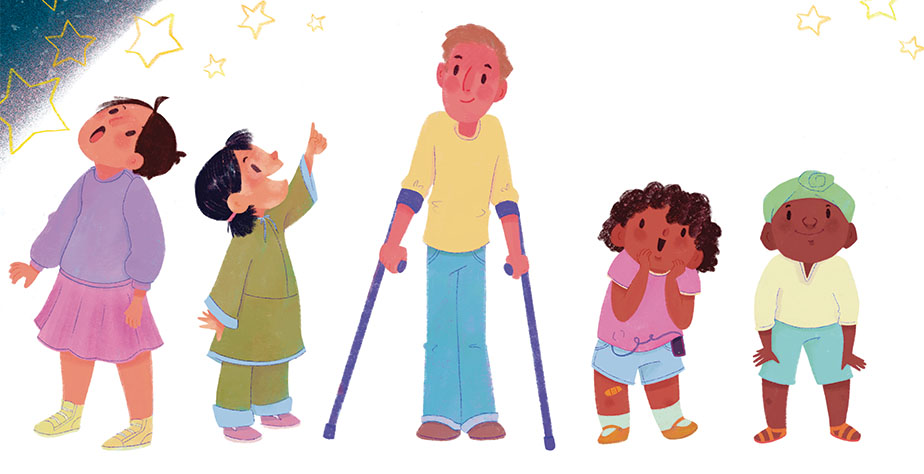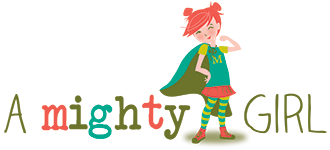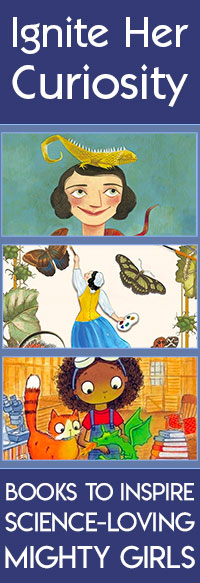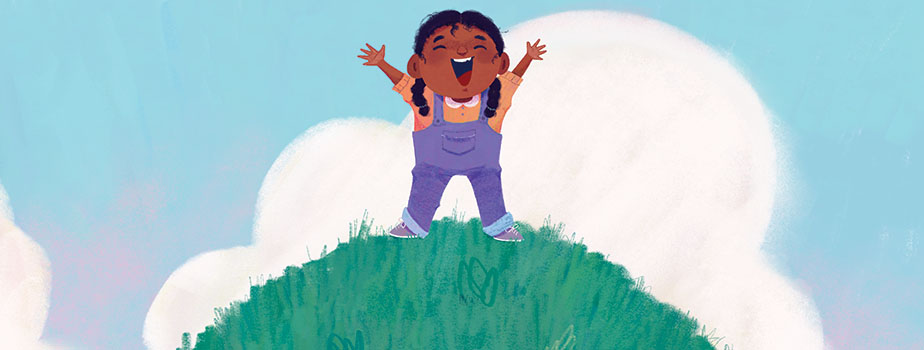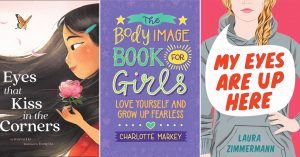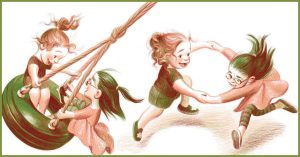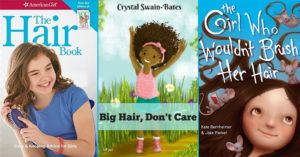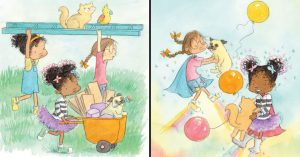"I Love My Body Because" is a new picture book by Shelly Anand and Nomi Ellenson that shows what makes every body special.
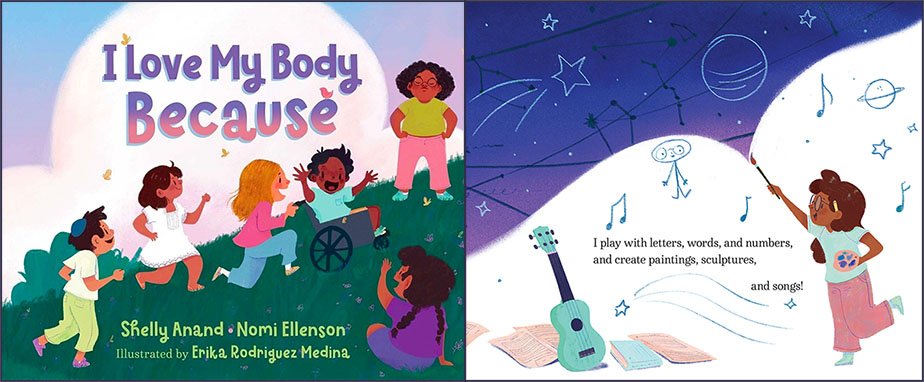
When Shelly Anand and Nomi Ellenson were girls, both remember feeling insecure and self-conscious about their bodies. Their experience is not unique according to a study by the Girl Scouts which found 80% of 10-year-old girls are already afraid of getting fat and other studies which found that 79% of girls have opted out of activities due to a lack of body confidence. As adults, Shelly and Nomi say that they have been on a journey to learn to love themselves just as they are, and they wanted to help girls learn to do the same. That desire was the spark that led to creation of their new book, I Love My Body Because — a book they wish they'd had as kids, "one that opened up a world where we recognize all the amazing things our bodies can do."
In our interview, A Mighty Girl spoke to Shelly and Nomi about their new book, their thoughts on body positivity, and message they hope that I Love My Body Because sends to their young readers.
Our Interview With Authors Shelly Anand and Nomi Ellenson
Can you start off by describing your new picture book I Love My Body Because for our readers?
Shelly: This picture book is an ode to our bodies and all bodies. It talks not only about how all bodies are beautiful but also about all the amazing things our bodies can do — from taking us where we need to go, doing yoga, lying on the beach, learning, reading, and so much more! It also talks about taking care of our bodies, about appreciating how no two bodies are the same, and that all bodies are good bodies.
Nomi: Our book is about cultivating a conversation with children, and the child within all of us, surrounding body awareness. The book is about moving beyond the false binary of a “good” or “bad” body and celebrating the uniqueness of each of our bodies. Through this affirming text we are building momentum surrounding how we can talk about our body in a way that feels natural and aligned.
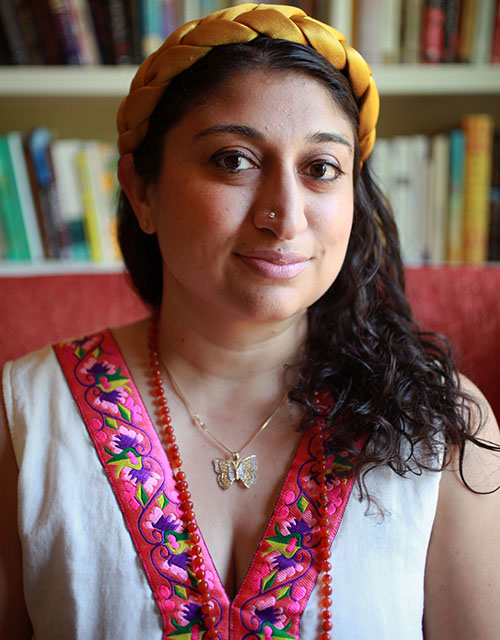 Shelly Anand
Shelly AnandWhat inspired you to write a book focused on body positivity?
Shelly: For me as a mother, I really wanted to make sure my kids had respect and appreciation for all people and all bodies, no matter the size, shape, color, or ability, as well as love of their own bodies. In her book Hunger, Roxane Gay talks about how children would point at her and make comments about her being fat. Children learn at such a young age to associate the word fat as something negative and with the word comes a slew of connotations and assumptions. So the book is an effort to counter those connotations and assumptions. Sonya Renee Taylor, in her book The Body is Not an Apology, talks about how children have this joy and sense of wonder about their bodies that we lose as adults. So the book is about capturing that joy and wonder and getting kids and the adults who read to them excited about all the amazing things our bodies can do as well as the diversity of bodies that exist in this world.
Nomi: In my boudoir photography studio, I work with women who wish to connect with their bodies as an exercise of self-care. From photographing over 800 women, similar narratives and themes emerge, and they’re often rooted in how they felt about their bodies at a young age. The most powerful thread that has emerged for me is that there is no correlation between body size and confidence. Any shame or dissatisfaction rarely has to do with physical qualities – it has to do with internal thoughts and patterns. This book is what I want to share with my clients, to all people, to myself, to remind all of us that in those moments we don’t feel positively towards our body, there is space to celebrate. Your body is worthy.
We've seen a surge in body positivity books for kids in recent years. What do you think makes your book special?
Shelly: Yes, after we wrote and sold this book in 2020, we saw some amazing books come out last year like Tyler Feder’s picture book Bodies Are Cool, Lisa Fipps’ Middle Grade novel Starfish, and Crystal Maldonando’s Young Adult Novel, Fat Chance Charlie Vega. I think our book is unique because it’s a book that young readers (aged 4-8) can read and enjoy, and other than Tyler’s book, there really aren’t many picture books talking about body positivity for this age group. Second, our book talks not just about the external parts of our bodies but also about the movement and actions our bodies can take, what our minds are capable of, as well as talking about how to take care of our bodies.
Nomi: The fact that there has been a surge of children’s books around body awareness speaks to the desire for us to become more fluent in this topic. Each book that has come out has a place, and they all work together towards a common goal. What feels unique to us is how our book normalizes a spectrum of language and activities when it comes to our bodies. We focused on telling an affirming story, one where the readers feel energized enough to take action by asking thoughtful questions and beginning discussions after reading it.
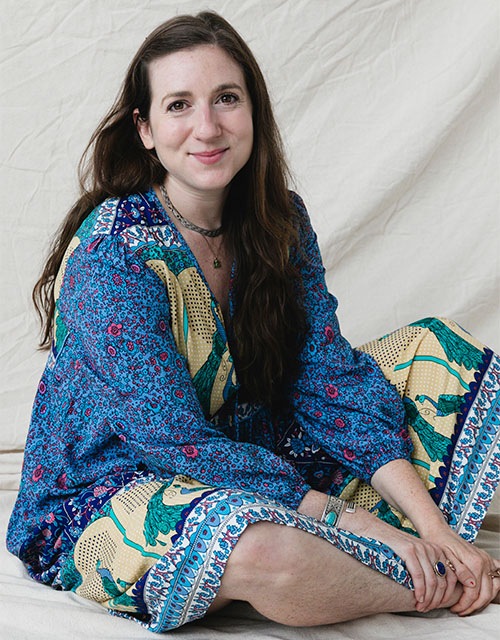 Nomi Ellenson
Nomi EllensonCan you describe your favorite page or spread in the book?
Shelly: I absolutely love the spread on the beach! It shows kids with different bodies doing different things at the beach — lying in the sand, putting their feet in the water, swimming, and building sand castles! It’s gorgeous!
Nomi: There’s a page that is about how our bodies don’t always do what we want them to do, and how that is okay! I love that in order for us to love and celebrate our bodies, we need to be able to hold the discomfort we have as well. They work together.
Illustrator Erika Rodriguez Medina created the artwork for the book. Can you share your impressions of the book's artwork and what it conveys to you?
Shelly:The process of seeing your words being interpreted and created, or brought to life, by a talented illustrator like Erika, is indescribable. It's my favorite part of the children’s book writing/publishing process.
Nomi: I love how the book is both literal and interpretive. We focused on creating as much diversity as possible. We hope that each child that reads it can see themselves or their friends, and if there is a character that feels unfamiliar they understand that body belongs as much as any other.
Is there anything else you'd like to share about your new book?
Shelly: The process of self-love and self-acceptance is something new for me. It’s a journey I started on after becoming a mother — wanting something different for myself and my children after being raised in a culture and society that is so fatphobic. Writing this book was such a wonderfully healing process and whenever my inner critique tries to come out to make me feel bad about my body, I’m grateful to have these words and images to go back to. I hope others, young and old, feel the same.
Nomi: Body awareness is an ongoing process — it’s like building a muscle. This book is for children, to create that muscle at a young age, but I also have a desire for the book to be as much for the person who reads it to the child, or for anyone who is on their own personal journey of body appreciation.
Finally, can you tell us about a few of your favorite picture books starring Mighty Girls?
Shelly: In our house, we absolutely love Always Anjali by Sheetal Sheth about a young Indian American girl embracing her traditional Indian name. We also love Laxmi from my debut picture book, Laxmi’s Mooch, about an Indian American girl learning to embrace her body hair! We recently discovered Prietita in Gloria Anzaldua’s two picture books Friends from the Other Side and Prietita and the Ghost Woman about a Chicana girl exploring her heritage and learning important lessons from a local curandera.
Nomi: As a young girl, my favorite books were about characters overcoming obstacles. An example would be Chrysanthemum by Kevin Henkes. It was a favorite because it was about working through mistreatment and building confidence. 